Located in the majestic Aravalli hills, Nahargarh Wildlife Sanctuary is a haven for nature enthusiasts and wildlife lovers. Spanning over 52 sq km, this sanctuary is known for its diverse flora and fauna, picturesque landscapes, and historical significance. Situated near Jaipur, Rajasthan, Nahargarh Wildlife Sanctuary is a popular destination for tourists seeking a mix of nature and heritage. These things make it a must-visit spot for anyone exploring the Pink City.
Location

Photo: Silas / Pexels / Image For Representation Only
Nahargarh Wildlife Sanctuary is situated in the Aravalli hills, just 20 kilometres from Jaipur, Rajasthan. This expansive sanctuary spans 52 square kilometres, offering a serene escape from the bustling city. Its elevated position provides breathtaking views of the surrounding landscape and the city of Jaipur. Nestled amidst lush greenery and rugged hills, the sanctuary’s location is ideal for observing diverse wildlife and enjoying nature.
Suggested Read: Desert Safaris Near Ajmer
How To Reach
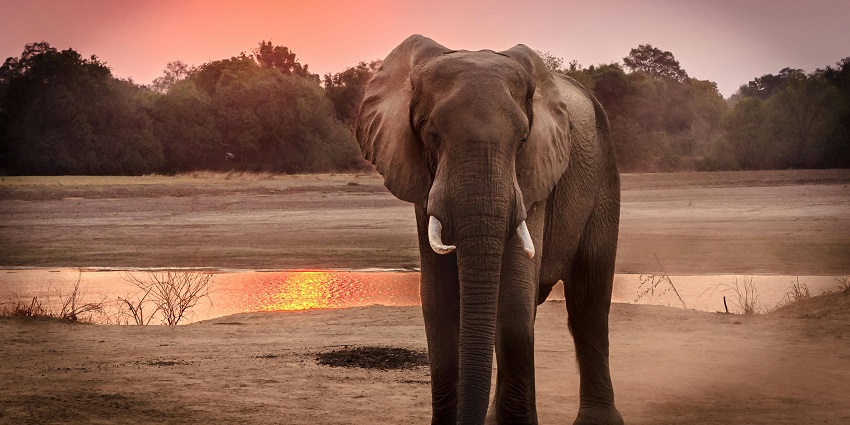
Photo: Harvey Sapir / Pexels / Image For Representation Only
You can easily reach Nahargarh Wildlife Sanctuary through air, road or rail:
By Road: The sanctuary is easily accessible by road from Jaipur, located just 20 km away. Visitors can reach by car, taxi, or bus.
By Rail: The nearest railway station is Jaipur Junction, situated 30 km from the sanctuary. From here, you can hire a car or take a taxi to reach the sanctuary.
By Air: Jaipur International Airport is located 45 km away from the sanctuary. Visitors can take a taxi or rent a car to reach the location.
Places To Visit Around Nahargarh Wildlife Sanctuary
After exploring Nahargarh Rajasthan Wildlife Sanctuary activities, you can visit these tourist attractions:
1. Nahargarh Fort
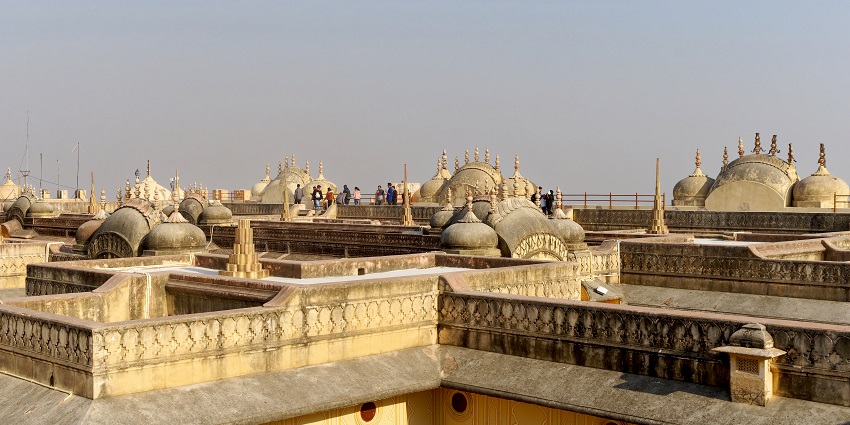
Photo: Jakub Hałun / Wikimedia Commons
One of the most iconic structures in Jaipur, Nahargarh Fort overlooks the city and offers panoramic views of the Aravalli hills and the vast stretch of Nahargarh Wildlife Sanctuary. Built in 1734 by Maharaja Sawai Jai Singh II, this fort served as a retreat for the royal family. The architecture of the fort is a blend of Indian and European styles, making it a unique structure. Nahargarh Wildlife Sanctuary location offers spectacular views from the fort, especially at sunrise and sunset. The fort’s interior houses palaces with elaborate designs, and a wax museum is also located here.
Location: Aravali Hills, Amer Road, Jaipur
Entry Fee: ₹200 for Indian citizens, ₹500 for foreigners
Timings: 10 AM to 6 PM
Suggested Read: Trekking In Jaipur
2. Jaigarh Fort
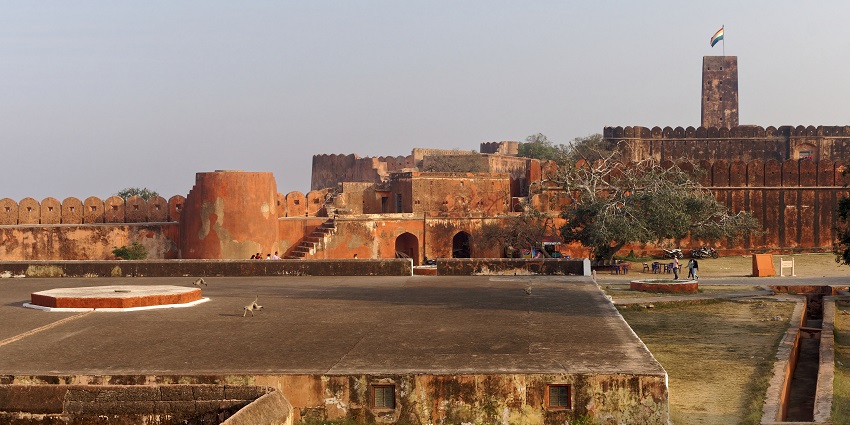
Photo: Jakub Hałun / Wikimedia Commons
Another magnificent fort near Nahargarh Wildlife Sanctuary is Jaigarh Fort. This is famed for housing the world’s largest cannon on wheels, the Jaivana Cannon. This fort is well-preserved and provides insights into the military history of Rajasthan. Perched on the Cheel ka Teela or Hill of Eagles, the fort offers splendid views of the surrounding hills and the Amer Fort. The fort’s vast structure is designed to be a self-sustained complex with its armoury, granaries, and a museum. The tunnels connecting Jaigarh and Nahargarh Forts add to its strategic importance.
Location: Cheel Ka Teela or Hill of Eagles of the Aravalli range
Entry Fee: ₹85 for Indian citizens, ₹200 for foreigners
Timings: 9 AM to 4:30 PM
3. Amer Fort
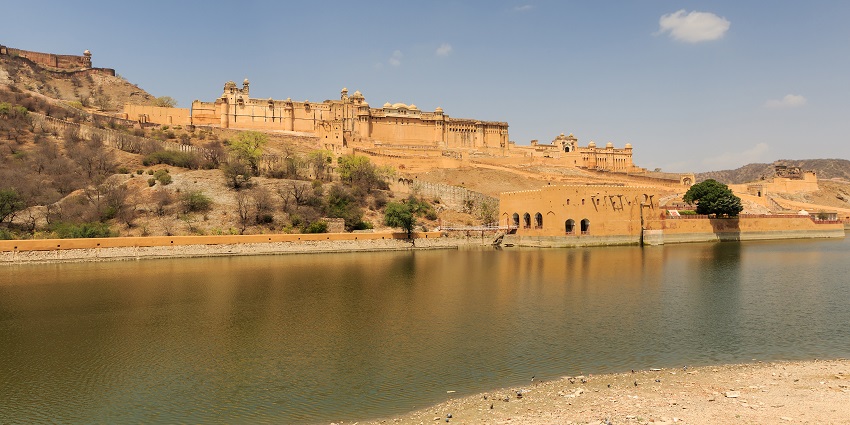
Photo: A.Savin / Wikimedia Commons / Image For Representation Only
Amer Fort, located just a few kilometres from Nahargarh Wildlife Sanctuary, is another UNESCO World Heritage Site that draws visitors from across the globe. The fort’s architecture is an amalgamation of Hindu and Mughal styles, with intricate marble and stone carvings. The Nahargarh Wildlife Sanctuary address places it close to Amer Fort, making it convenient to explore both sites in a single trip. Inside the fort, the Sheesh Mahal (Mirror Palace) and the Sukh Mandir are must-see attractions, alongside the spectacular views of Maota Lake.
Location: Amer, Jaipur
Entry Fee: ₹100 for Indian citizens, ₹500 for foreigners
Timings: 8 AM to 5:30 PM
Suggested Read: Rajasthan Weekend Trip
4. Chand Baori
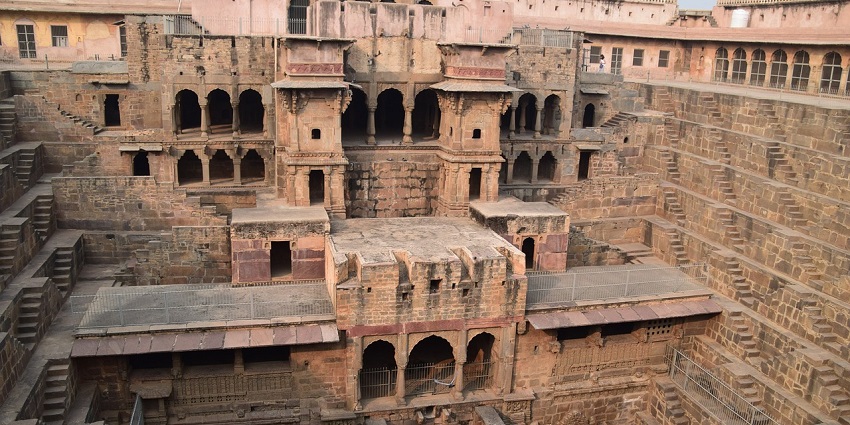
Chand Baori, one of the largest and deepest stepwells in the world, is located near Nahargarh Wildlife Sanctuary. This architectural marvel is a stepwell featuring a series of steps that descend to the water source below. Built to conserve water and offer relief from the scorching summer heat, the stepwell’s symmetrical design is truly impressive. Its structure remains cool even during the hottest months, providing a refreshing escape. The stepwell’s unique construction not only serves a practical purpose but also creates a striking visual experience, making it a fascinating spot to explore.
Location: Abhaneri, Jaipur
Entry Fee: Free
Timings: 8 AM to 6 PM
Where To Stay
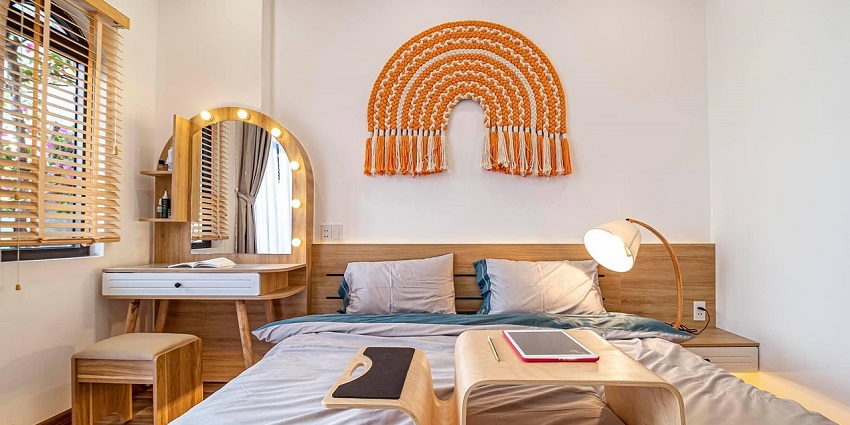
Photo: lequangutc89 / Pixabay / Image For Representation Only
Within close proximity to the Nahargarh Wildlife Sanctuary, there is a diverse selection of lodging options accessible, ranging from opulent hotels to affordable guesthouses. The Tree of Life Resort, Hotel Amer View, and Nahargarh Haveli are some of the accommodations that provide convenience and comfort within close proximity to the sanctuary.
Suggested Read: Saree Shopping In Jaipur
Where To Eat

Photo: Chainwit. / Wikimedia Commons
Guests can indulge in the regional cuisine of Rajasthan at adjacent restaurants such as Chokhi Dhani, LMB Hotel, or Handi Restaurant. All of these are located inside the city limits of Jaipur. This is a great way to wind down after a productive day of sightseeing.
Other Factors To Consider
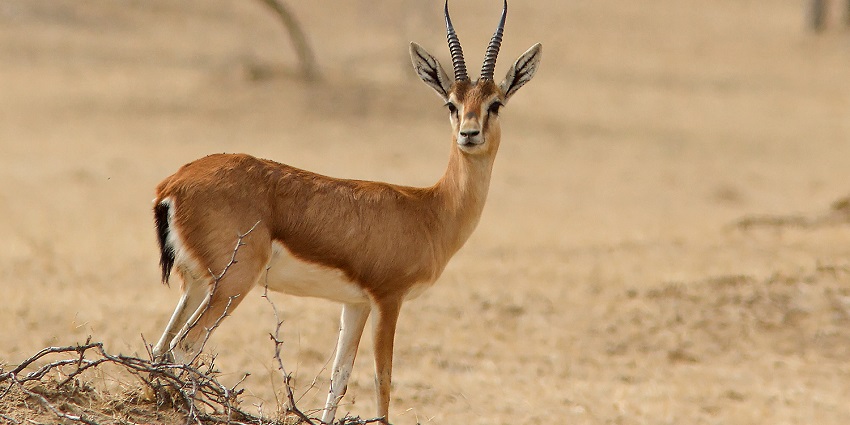
Photo: Mvshreeram / Wikimedia Commons / Image For Representation Only
Nahargarh Wildlife Sanctuary ticket price is ₹50 for Indians and ₹300 for foreigners.
Tips For Travellers:
- Wear comfortable clothing and sturdy shoes for trekking and exploring.
- Bring sunscreen, insect repellent, and water to stay protected and hydrated.
- Use a camera with a zoom lens to capture wildlife from a distance for Nahargarh Wildlife Sanctuary photos.
- Follow sanctuary rules to ensure safety and protect wildlife.
- Opt for guided tours to gain deeper insights into the sanctuary and check the Nahargarh Wildlife Sanctuary timings before visiting.
Suggested Read: Places To Visit In Khatu Shyam
Nahargarh Wildlife Sanctuary is a perfect blend of nature, wildlife, and heritage. Whether you’re trekking through the lush landscapes, capturing breathtaking Nahargarh Wildlife Sanctuary photos, or exploring nearby forts and temples, this sanctuary offers a memorable experience for all. Plan your visit today with TripXL and immerse yourself in the beauty and serenity of Rajasthan’s wilderness!
Cover Photo: Karmdeep Singh / Pexels / Image For Representation Only


 WhatsApp
WhatsApp
 Twitter
Twitter









